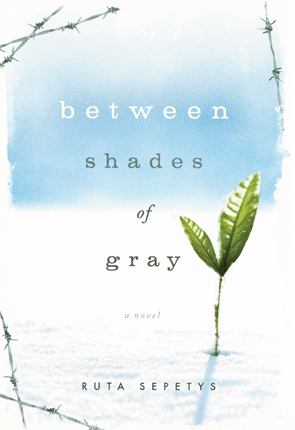 The power of historical fiction is demonstrated when an author can transport the reader into the sensibility of another time. All three of these books accomplish that goal in a compelling manner.
The power of historical fiction is demonstrated when an author can transport the reader into the sensibility of another time. All three of these books accomplish that goal in a compelling manner.Come August, Come Freedom by Gigi Amateau (Candlewick, 2012) tells the story of Gabriel Prosser, an African-American slave who organized an uprising in Virginia in 1800. Amateau researched Prosser extensively, then took the pieces she discovered in primary sources and fashioned them into a gripping portrait of a complex man. Who would Gabriel be to take on such a mission in his time and place? What events would take someone from dreaming about freedom to organizing a full-scale rebellion? Amateau creates a believable, thrilling version of events that examines human motivation beyond the bare bones of the court records.
Ruta Sepetys' first book, Between Shades of Gray, was a outstanding debut. She returns with another historical fiction title, but one that is completely different in setting and tone. Out of the Easy (Philomel, 2013) takes us to 1950s New Orleans. Josie Moraine is the daughter of a prostitute. Her part-time job is cleaning up the brothel and doing errands for the madam, Willie. Raised in this world, Josie accepts it but is not eager to embrace it. Sepetys is particularly good in catching the rhythms of her characters. The setting is another star here--the mixture of grit, glamour, truth, and deception that Josie sees each day is unforgettable. Things begin to change when Josie makes a friend who is everything Josie wishes she could be--a college girl with a respectable family. Sepetys' characters are multi-dimensional however, and most are not all good or bad. Discovering the many layers within each person is one of the great pleasures of Out of the Easy.

 What was going on in Lithuania during World War II? Not sure? Before reading Between Shades of Gray, neither was I. Children’s literature includes many important books about World War II and the Holocaust but most well-known titles recount the experience in countries such as Germany, Poland, France, and England. The daughter of a Lithuanian refugee, Ruta Sepetys makes an important contribution to the field with her first novel.
What was going on in Lithuania during World War II? Not sure? Before reading Between Shades of Gray, neither was I. Children’s literature includes many important books about World War II and the Holocaust but most well-known titles recount the experience in countries such as Germany, Poland, France, and England. The daughter of a Lithuanian refugee, Ruta Sepetys makes an important contribution to the field with her first novel.